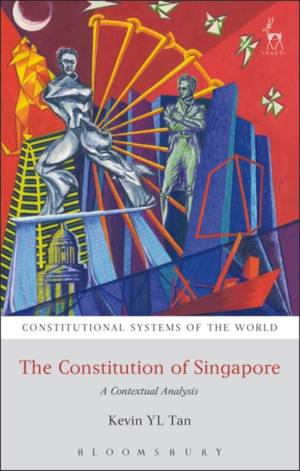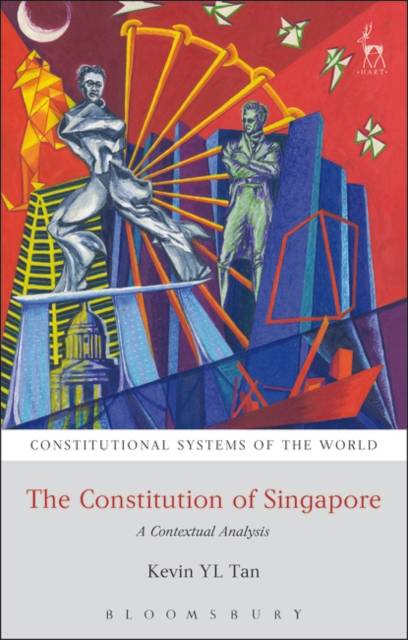
Je cadeautjes zeker op tijd in huis hebben voor de feestdagen? Kom langs in onze winkels en vind het perfecte geschenk!
- Afhalen na 1 uur in een winkel met voorraad
- Gratis thuislevering in België vanaf € 30
- Ruim aanbod met 7 miljoen producten
Je cadeautjes zeker op tijd in huis hebben voor de feestdagen? Kom langs in onze winkels en vind het perfecte geschenk!
- Afhalen na 1 uur in een winkel met voorraad
- Gratis thuislevering in België vanaf € 30
- Ruim aanbod met 7 miljoen producten
Zoeken
Omschrijving
Singapore's Constitution was hastily cobbled together after her secession from the Federation of Malaysia in 1965. In the subsequent 50 years, the Constitution has been amended many times to evolve a Constitution like no other in the world. Outwardly, Singapore has a Westminster-type constitutional democracy, with an elected legislature, fundamental liberties and safeguards to ensure the independence of the judiciary. On closer inspection, the Constitution displays many innovative and unusual characteristics. Most notable among them are the various types of Members of Parliament that have been introduced since the mid-1980s, the office of the Elected President and the fact that there is no constitutional right to property. This volume seeks to explain the nature and context of these constitutional innovations in the context of a pluralistic, multi-ethnic state obsessed with public order and security. The volatile racial mix of Singapore, with its majority Chinese population nestled in a largely Malay/Islamic world, compels the state to search for ethnic management solutions through the Constitution to guarantee to the Malays and other ethnic minorities their status in the polity. In addition, it examines how the concept of the rule of law is perceived by the strong centrist state governed by a political party that has been in power since 1959 and continues to hold almost hegemonic power.
Specificaties
Betrokkenen
- Auteur(s):
- Uitgeverij:
Inhoud
- Aantal bladzijden:
- 276
- Taal:
- Engels
- Reeks:
Eigenschappen
- Productcode (EAN):
- 9781849463966
- Verschijningsdatum:
- 26/03/2015
- Uitvoering:
- Paperback
- Formaat:
- Trade paperback (VS)
- Afmetingen:
- 137 mm x 213 mm
- Gewicht:
- 362 g

Alleen bij Standaard Boekhandel
+ 77 punten op je klantenkaart van Standaard Boekhandel
Beoordelingen
We publiceren alleen reviews die voldoen aan de voorwaarden voor reviews. Bekijk onze voorwaarden voor reviews.









